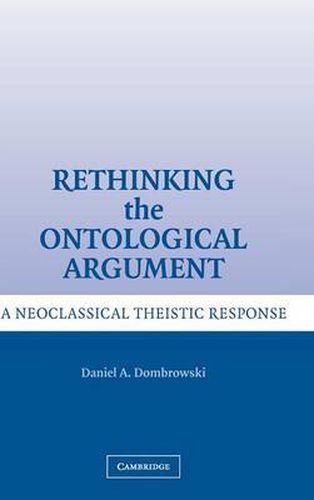Readings Newsletter
Become a Readings Member to make your shopping experience even easier.
Sign in or sign up for free!
You’re not far away from qualifying for FREE standard shipping within Australia
You’ve qualified for FREE standard shipping within Australia
The cart is loading…






In recent years, the ontological argument and theistic metaphysics have been criticised by philosophers working in both the analytic and continental traditions. Responses to these criticisms have primarily come from philosophers who make use of the traditional, and problematic, concept of God. In this volume, Daniel A. Dombrowski defends the ontological argument against its contemporary critics, but he does so by using a neoclassical or process concept of God, thereby strengthening the case for a contemporary theistic metaphysics. Relying on the thought of Charles Hartshorne, he builds on Hartshorne’s crucial distinction between divine existence and divine actuality, which enables neoclassical defenders of the ontological argument to avoid the familiar criticism that the argument moves illegitimately from an abstract concept to concrete reality. His argument, thus, avoids the problems inherent in the traditional concept of God as static.
$9.00 standard shipping within Australia
FREE standard shipping within Australia for orders over $100.00
Express & International shipping calculated at checkout
In recent years, the ontological argument and theistic metaphysics have been criticised by philosophers working in both the analytic and continental traditions. Responses to these criticisms have primarily come from philosophers who make use of the traditional, and problematic, concept of God. In this volume, Daniel A. Dombrowski defends the ontological argument against its contemporary critics, but he does so by using a neoclassical or process concept of God, thereby strengthening the case for a contemporary theistic metaphysics. Relying on the thought of Charles Hartshorne, he builds on Hartshorne’s crucial distinction between divine existence and divine actuality, which enables neoclassical defenders of the ontological argument to avoid the familiar criticism that the argument moves illegitimately from an abstract concept to concrete reality. His argument, thus, avoids the problems inherent in the traditional concept of God as static.